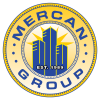According to Organization for Economic Cooperation and Development (OECD), Canada spends higher percentage of GDP on education compared to other countries. Its educational expenditure is among one of the highest in the world and is significantly ahead of OECD average. Canada has the highest rate of post-secondary educational attainment. Moreover, it consistently ranks higher than other countries on international tests on academic performance.
Canadian federal government shares power with provincial and local governments as to supervision of education in the country. It is the province’s main responsibility to administer and regulate local educational programs. The educational systems are generally similar across all provinces and territories except some variations.
Universities
- Canada has nearly 100 universities and is home to some of the world’s top universities. Some well-known universities include University of Toronto, University of British Columbia and McGill University.
- Universities offer three levels of education: bachelor’s degree, master’s degree and doctoral degree.
- Bachelor’s degree normally requires 3 to 4 years of study. Master’s degree usually takes 1 to 3 years to complete. Doctoral degree requires 3 or more years of study and research to obtain the title.
- Some regulated professions such as medicine, law and education generally require an internship to complete the degree and, in some cases, additional years of education.
- Co-operative programs and internship opportunities are often available for you to gain competitive edge when you join the workforce.
- Universities offer broad range of services include academic counseling, career advising, scholarship, special needs for students with disabilities, cooperative education, and more.
- Academic year is divided into 2 semesters: September to December and January to April. Some schools offer spring and summer classes and some operate on trimester basis.
- Admission requirements differ from school to school and program to program. At minimum, secondary diploma or pre-university diploma is required. Other requirements may include meeting specific language test scores, having certain pre-university average academic grades and other requisites deemed necessary for the program.
- Tuition fees vary depending on the school and program. International students usually pay higher fees than domestic students.
Colleges
- Colleges and technical institutes undertake diploma and certificate programs as their primary activity.
- It constitutes a major component of educational system in the province of Quebec and is generally a requirement to university admission.
- Pre-university programs are usually 2 years and cover lessons that prepare students for a chosen field in university.
- Technical or professional programs are usually 3 years in duration and prepare students towards specific skilled trade and career path after graduation.
- Length of the program ranges from few months to three or four years.
Elementary and Secondary Schools
- Elementary and secondary schools are usually from grades 1 to 12.
- Students go from primary to secondary school between grades 6 to 8 depending on the province or territory.
- The school year is usually from the end of August to the end of June.
- English-language and French-language schools are available for selection.
- Students can select from public or private schools. Private schools usually have lower teacher to student ratio.
- Government provides heavy investment and funding to primary and secondary schools.
- Canadian high schools are recognized worldwide Language Schools
- As a bilingual country, Canada boasts its language training competence. Many schools and institutions offer English and French lessons and classes.
- Language lessons are being offered for different purposes, such as educating international students for formal schooling, preparing new immigrants for integration to local community and training workers towards career advancement.
- A combination of different types of lessons is available: classroom lessons, online self-study lessons, online seminar, one-to-one tutorial etc.
- Different programs are designed to cater to different needs and backgrounds of the students.
Mercan International Education has partnerships with numerous educational institutions of different academic levels across Canada. We lawfully represent our partner schools in student recruitment and advising. As our partnership network expands constantly, you are encouraged to inquire with our company representatives for a complete and updated list of educational institutions and programs.
